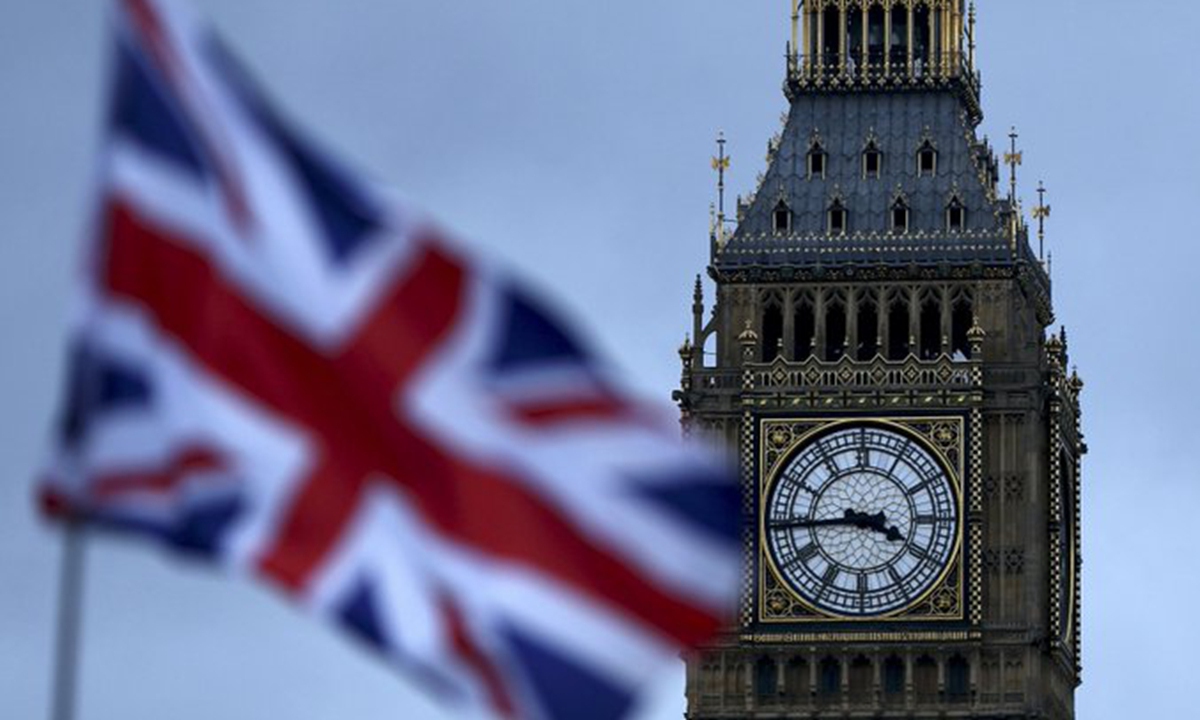
File photo
Recently, the UK has released some positive signals toward China, but its military moves reveal a clear contradiction. On Tuesday, the UK Royal Navy's HMS Prince of Wales carrier strike group officially set sail for the Indo-Pacific region for an eight-month deployment. It will conduct joint military exercises with regional allies and make port calls. According to the UK officials, the deployment aims to "reinforce its commitment to the Indo-Pacific" and promote trade and economic cooperation. This move shows that the UK's strategic "return to the Indo-Pacific" is once again on the agenda - seemingly a revival of its imperial nostalgia.
In the late 16th and early 17th centuries, British colonial expeditions had already reached Asia, gradually taking control of many trading posts and large territories. The core objectives of British colonialism in Asia were: first, economic plunder - seizing resources, markets and wealth, and forcibly restructuring Asian economies to serve the UK's industrial growth and capital accumulation; second, hegemonic expansion - maintaining imperial order and countering geopolitical rivals in Asia, especially France, Russia and later Germany; and third, ideological export - using the narrative of a "civilizing mission" to justify colonial atrocities while promoting Western values.
Britain's colonial expansion in Asia brought endless turmoil and immense suffering to the region. It was only after World War II, when the colonies freed themselves from British control and pursued independence, that Asia began to truly develop. Today, Asian countries advocate for equality, peaceful coexistence and dialogue. They have transformed from colonized peoples into important participants in a multipolar world. They emphasize economic development and regional cooperation, as exemplified by ASEAN and the economic success of the "Four Asian Tigers." Asian countries have also maintained restraint in military matters, striving to balance security and development while building an Asian security model. The rise of Asia is a collective rise - closely linked with China's peaceful development - and it injects lasting momentum into global stability and prosperity.
Now, with great fanfare, the UK is once again "returning to Asia." While claiming to pursue security and economic interests, it seeks to reinforce its presence in the Asia-Pacific through military deterrence and showcase its continued leadership in the international order. UK officials have made no attempt to hide this, stating that the operation would send a "powerful message" of UK military power, not only supporting key trade routes and allied partners in the region but also demonstrating "credible deterrence" and the UK's "support to NATO and the rules-based international order."
At a time when the US is championing "America First" and reshaping global strategy, the UK seems to be experiencing its own imperial delusions. From actively meddling in the Russia-Ukraine crisis to now dispatching a major naval fleet, Britain is clearly trying to seize the moment in a rapidly changing world to revive the glory of its former empire and highlight its indispensability in the Western-led order. This gives the impression that the UK has yet to abandon the imperial logic of its past and is still approaching Asian affairs with a 19th-century hegemonic mind-set.
It is also worth noting that some British media outlets have hyped a "defying China" narrative around this deployment, making provocative remarks about transits through the Taiwan Straits and escalating antagonism with China. This risks undermining the recent signals of cooperation sent by the UK government.
The UK should soberly recognize that today's Britain is no longer the British Empire of the past, and today's Asia is no longer a collection of colonies. Clinging to imperial dreams will only lead to a backlash from history.
Li Wei is a postdoctoral fellow at the Shanghai Academy of Global Governance and Area Studies at Shanghai International Studies University. Jiang Feng is a research fellow at the Shanghai International Studies University and president of the Shanghai Association of Regional and Country Studies. opinion@globaltimes.com.cn













